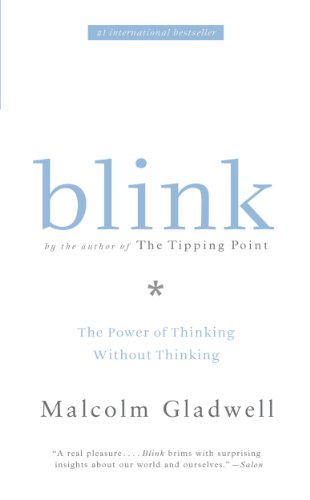

This article is an excerpt from the Shortform summary of "Blink" by Malcolm Gladwell. Shortform has the world's best summaries of books you should be reading.
Like this article? Sign up for a free trial here .
What is intuitive decision making? What is the adaptive unconscious? How can I use the adaptive unconscious to make the best decisions?
Learn why snap judgments and your adaptive unconscious may be the most useful tool in your decision-making toolbox.
Use the Adaptive Unconscious for Effective Intuitive Decision Making
Unconscious thinking is variously known as the adaptive unconscious, intuition, and making snap judgments. When we think unconsciously, we make decisions without understanding why, or even realizing we’ve made them. This is intuitive decision making, also known as unconscious decision making.
The Pros of Intuitive Decision Making
- Intuitive decision making can lead to good decisions.
- It’s quick, taking mere seconds.
- It’s sophisticated, efficient, and filters irrelevant information for you.
- It’s generally more effective under stress than conscious thinking.
The Cons of Intuitive Decision Making
- The process of intuitive decision making is mysterious. We often have no idea how we know what we know, or how we arrived at a decision. This can be frustrating and lead to unhelpful, or even detrimental, rationalizing.
- It requires that we be aware of our feelings, since these are the unconscious mind’s language of communication.
- We have to learn to trust our instincts, and that’s hard.
- We also have to learn when to trust our instincts. Our unconscious minds can malfunction due to time pressures or deeply held biases.
We know when we’re thinking consciously, developing a theory and weighing the pros and cons. But we often don’t know when our adaptive unconscious is working in intuitive decision making, and it’s working all the time. It’s like a quiet computer processing all the information that keeps us functioning but that would take too long to process consciously.
While both conscious and intuitive decision making have benefits, we assume that conscious thinking is better. The following example shows that the adaptive unconscious and intuitive decision making can be just as good as, or better than, conscious thinking.
Example of Intuitive Decision Making: Rating a Professor
Sometimes, the adaptive unconscious is just as good as the conscious mind at assessing someone’s competence.
A psychologist compared two sets of ratings of college professors.
- Set #1: These ratings came from students who took a full semester of classes with the professor. These students had the time and experience to use their conscious minds to rate the professor.
- Set #2: These ratings came from students who watched a two-second video clip of the professor, with the sound off. They had no other experience with the professor. These students didn’t have the time or experience to use their conscious minds to rate the professor. Consequently, they had to use their unconscious minds, or intuitions.
Results: The ratings from both sets were astonishingly similar. We can make a judgment about a teacher’s competence after two seconds, and that judgment will likely be very close to the judgment of someone who spends an entire semester in that teacher’s class. One advantage of intuitive decision making, or unconscious decision making, is that it takes less time than conscious decision making.
The Advantages of Intuitive Decision Making
In addition to being speedy, snap decisions are unconscious. The unconscious mind handles all the minor bits of information thrown at us every day. This frees up the conscious mind to focus on problems that need our deliberate attention.
Ventromedial Damage
Scientists can see how much work the adaptive unconscious does by observing people with brain damage to the ventromedial prefrontal cortex. This is the area of the brain used for intuitive decision making, or unconscious decision making.
People with ventromedial damage can’t make snap judgments. Their unconscious minds don’t prioritize information for them. They give equal weight to minor and major details when making a decision. Consequently, they can make decisions, but they do it extremely slowly, due to the inability to tune out distracting information. They’re unable to utilize intuitive decision making.
Additionally, people with ventromedial damage have trouble turning decisions into actions. Without the aid of the adaptive unconscious, they’re highly rational thinkers and don’t involve their emotions in decision making. This seems like a good thing. We’re often told to leave our emotions out of the decision-making process. But we need an emotional push to get from decisions to actions.
Without emotion, we may know something is bad for us, but we’ll keep doing it anyway. Especially in stressful situations, emotion (which often comes from the unconscious) gives us the nudge we need to act on decisions.
In summary, if we didn’t have an unconscious mind to prioritize information for us, we’d weigh every detail, relevant or not, before coming to a decision. Further, the resulting decision may not be the best decision, because it likely wouldn’t be based on the most important information. We need the process of intuitive decision making.
Just as critical, if we didn’t have an unconscious mind, we may not have the emotional push to act on a decision once we’d made it. The adaptive unconscious does a lot of heavy lifting to make smart, actionable decisions.
———End of Preview———

Like what you just read? Read the rest of the world's best summary of "Blink" at Shortform . Learn the book's critical concepts in 20 minutes or less .
Here's what you'll find in our full Blink summary :
- How you can tell if a marriage will fail, within 3 minutes
- Why your first impressions are usually surprisingly accurate
- The dark side to making first impressions, and how to avoid the,






